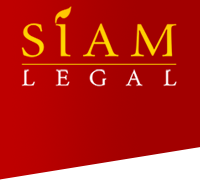United States Employment Based Preference Immigration Categories
The United States’ Employment-based immigration is based on a quota and preference system. Annually, there are 140,000 available employment immigrant visa available per year. These immigrant visas are divided into five preference categories. These preference categories are Priority Workers (28.6%), Advance Degree Professionals and Exceptionally Ability Aliens (28.6%), Skilled Workers, Professionals, and Other Workers (28.6%), Special Immigrants including religious workers (7.1%), and Employment Creation Investors Immigrants (7.1%).
“Priority Workers” are aliens with extraordinary ability in the sciences, arts, education, business, or athletes which have been nationally or internationally recognized and whose entry would substantially benefit the United States. These include outstanding professors and researchers who have been recognized internationally and certain multinational executives and managers. Labor Certifications are not required for “Priority Workers.” The number of available visa include the spouse and children of the principal alien.
“Advance Degree Professionals and Exceptional Ability Aliens” are professionals who hold an advance degree (a master’s or doctor’s degree) or an alien who has exceptional ability in the sciences, arts, or business. Their entry as an immigrant should substantially benefit the national economy, cultural or educational interests, or welfare of the United States because their services are sought by an employer in the United States. Permanent labor certifications are required to ensure that the admission of the foreign worker to work in the U.S. will not adversely affect the job opportunities, wages and working conditions of U.S. workers. The number of available visa include the spouse and children of the principal alien.
“Skilled Workers, Professionals, and Other Workers” are workers who are capable of performing skilled labor requiring at least two years of training or experience, professionals who hold a baccalaureate degree, or unskilled labor that is not of a temporary or seasonal nature. The “Other Workers” (unskilled labor) is a separate subcategory in the percentage allocation of immigrant visas. Permanent labor certifications are generally required for this preference category. The number of immigrant visa available under this category are usually exhausted annually. There is currently a multi-year waiting period for employment based immigrants in this category.
“Special Immigrants” are religious workers and those who have been designated through an act of congress to be given preferential rights to immigrate into the United States. There are approximately 10,000 visa available each year with no more than 5,000 allocated to religious workers. An example of special legislation is to provide foreign nationals who have worked on behalf of the United States in war torn areas such as in Afghanistan and Iraq a path to immigrate to the United States.
The “Employment Creation Investor” category was created for foreign nationals who have invested $1,000,000 into the United States or $500,000 in targeted employment areas. These investments must have the benefit of generating a minimum of 10 full time jobs for U.S. residents. The foreign national can invest in a new business, reorganize an existing business or invest in an approved EB-5 regional center. The new 10 full time jobs cannot include the investor or family members.
The application process for each of these preference categories are different and complex. Prior to beginning the process of applying for an Employment Based immigrant visa to the United States, it is important that the applicant should talk with an experienced U.S. immigration professional.
Category: US Immigration
About the Author (Author Profile)
Mr. Robert R. Virasin is a graduate of the University of California, Los Angeles with a Bachelor Degree in Political Science, Mr. Virasin completed his Juris Doctorate at the University of Houston and a Masters of Laws (Business) from Chulalongkorn University, Bangkok. Mr. Virasin is a member of the State Bar of Texas and is a licensed U.S. attorney with over 15 years of legal experience. Robert is a regular contributor and author of a number of immigration related articles.










